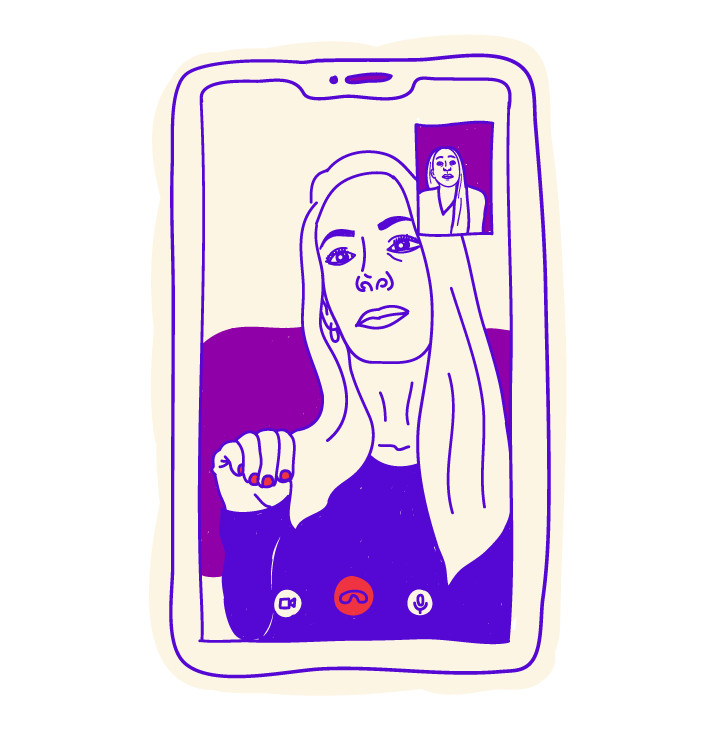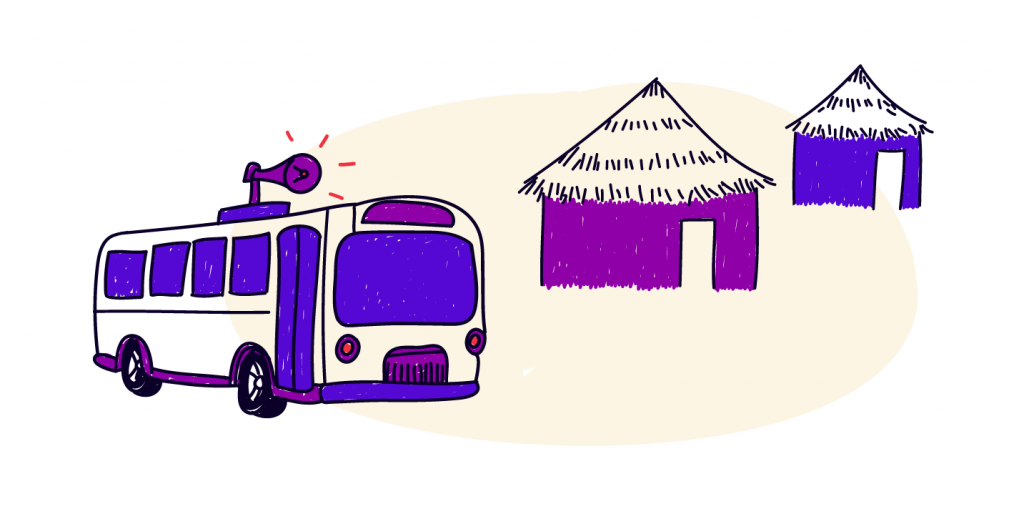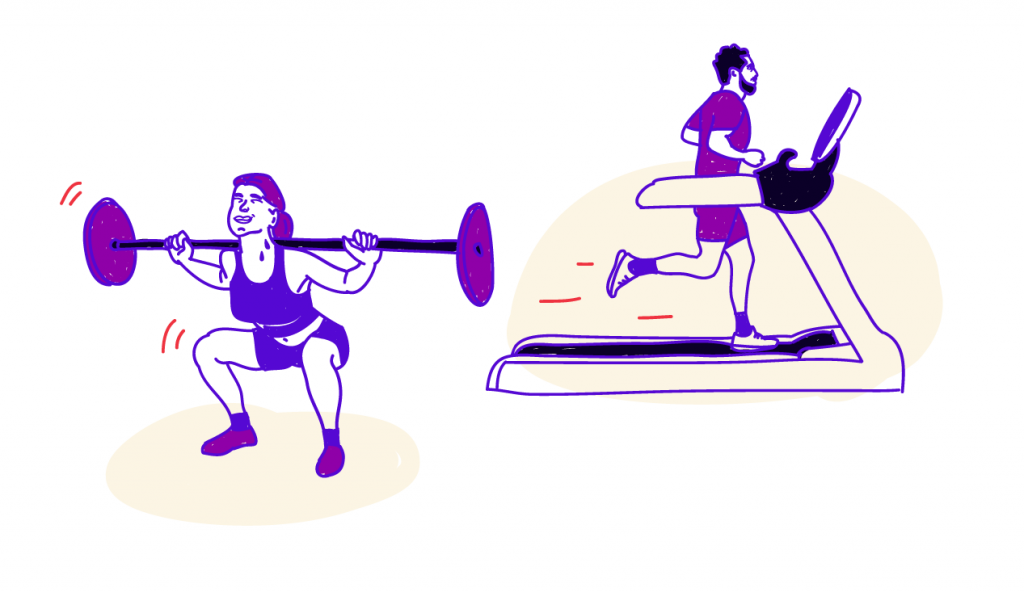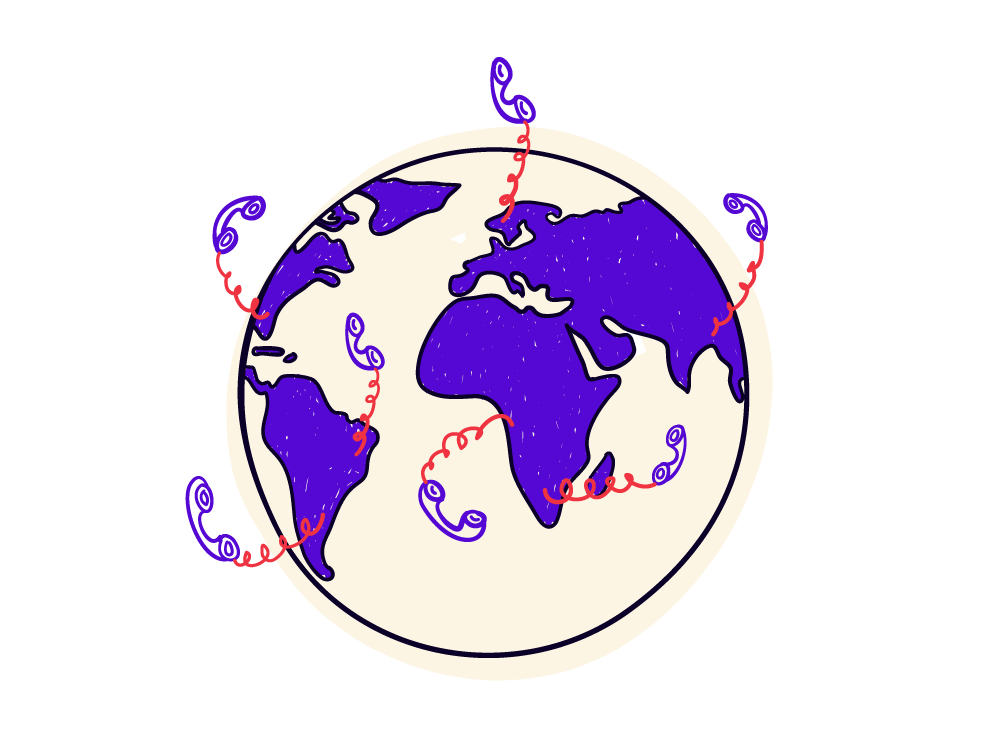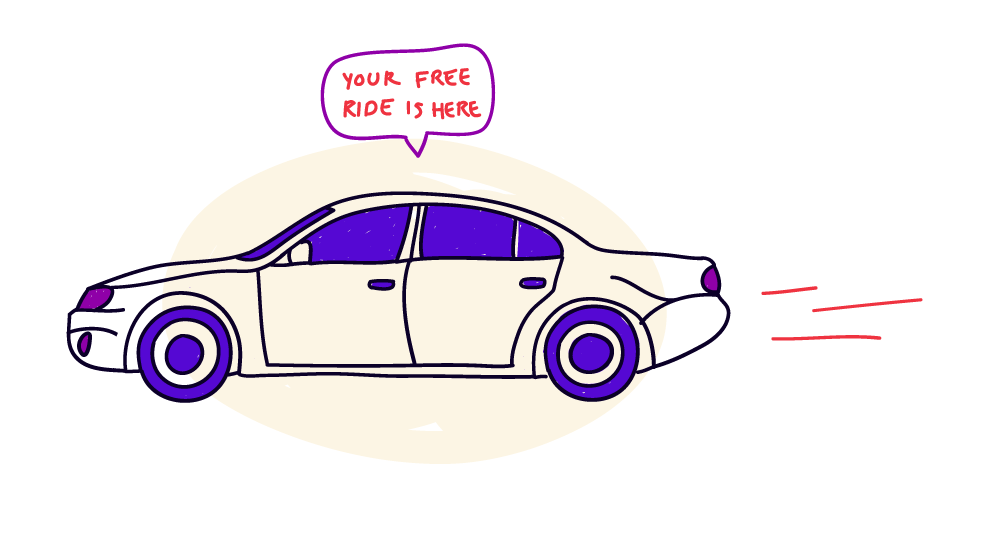Author: Jennifer Gilbertson – Norwegian Red Cross
Illustrations: DesignIt
Isolation is crucial to contain the virus, and we have seen that countries where citizens have practiced this has made an impact on transmission of COVID-19. We are also aware that isolation can also expose people to other risks. Sexual and gender-based violence (SGBV) is one such risk. Additional factors related to the pandemic, including increased financial stress and weak institutional responses can increase or intensify levels of violence. Women and children are often the most vulnerable to violence and abuse in the home, and countries are already seeing a sharp rise in domestic violence reports while access to services is becoming a challenge due to the implementation of measures and policies to contain the spread of the virus
Information Sharing
The Challenge:
As the pandemic evolves, many National Societies are rapidly changing their programs and services to meet the needs of vulnerable women and children in isolation. One of the challenges is rapidly communicating these changes to these populations, especially when they may not have access to privacy on their communication tools.
The Response:
Confounding pressures during pandemic-induced isolation can increase rates of SGBV where there was not violence or abuse previously. Therefore, one of the most important uses of information is information which helps individuals understand what violence and abuse can look like. Education around violence will help more people understand when they, or those around them, have been targets of violence and abuse.
But how do we get this information to beneficiaries during the pandemic? The Gambia RCS is using multiple platforms to reach various beneficiaries with messages around non-violence, sexual exploitation and abuse, and hotline numbers. These messages are being shared by megaphone, social media, and on national broadcasting radio shows. They are also releasing short animated videos to share these messages.
Many National Societies, such as the South Sudan RCS, are mainstreaming SGBV information into other COVID-19 communication campaigns, such as information being shared around hand washing and social distancing. Are you delivering food? Hygiene kits? Dignity kits? Psychosocial support kits? Include information on local SGBV services and hotline numbers. For vulnerable groups and those who may be excluded from mainstream communication, certain National Societies have been communicating in creative ways.
In the Philippines, SGBV information is being shared with sign language translations. In Bangladesh, information on SGBV is being disseminated through social media to reach the public and have also been translated into Rohingya. To disseminate information in the Cox’s Bazaar camps, where internet is not available, hard copies are being printed and distributed by community volunteers. The Bangladesh RCS is also sharing key messages on radio, which is being broadcast in the camps. All community volunteers are being taught key SGBV messages for COVID-19.
Other actors, such as UN Women, are using celebrities such as Lady Gaga to bring awareness to the challenges and risks around SGBV during COVID-19.
Prevention of SGBV
The Challenge:
Multiple generations stuck at home together, with education demands for children and decreased access to services and energy and emotional outlets are increasing the risk of SGBV. How can we make sure that we support our communities to find constructive outlets for their pain and anxiety, so they do not resort to violence? How can we make sure our local systems are prepared to handle the increase in cases?
The Response:
The increase in intimate partner violence and self-inflicted violence during COVID-19 is deeply linked with an increase of stress, fear, and anxiety. Many individuals have lost their livelihoods and access to their typical stress outlets. In response, many National Societies are scaling up efforts to engage their community members in mental health and psychosocial support (MHPSS) and physical activities for stress release. National Societies, and their volunteers, are sharing many ideas for activities you can do inside your home to get exercise, from singing and dancing to challenges you can do as a family. The American Red Cross is posting small mental health exercises and tips on their Instagram account. The Indonesia RCS has been producing several types of information focused on prevention, including promotion of healthy coping mechanisms for stress. For more information on MHPSS innovations, see our MHPSS innovation collection.
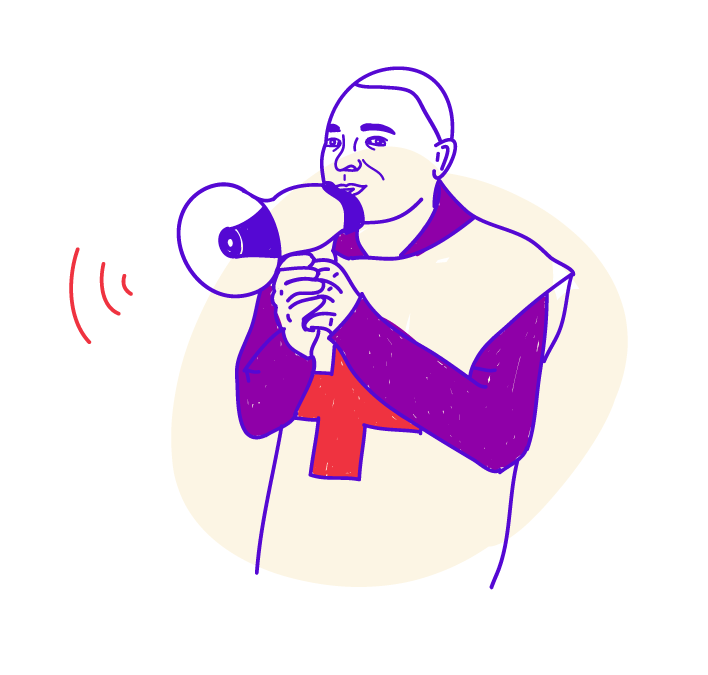
Provision of Services
The Challenge:
How do we reach those who are being subjected to violence during isolation and quarantine? Many of the mechanisms for disclosure and referral pathways have changed or disappeared completely since the outbreak. In addition, confinement in close quarters with abusers makes it extremely challenging for victims to safely communicate their experience and get support.
The Response:
Reaching survivors and connecting them to services has been a universal challenge during this pandemic, but different solutions have worked in different contexts and have reached different populations. Many National Societies have had to continuously adapt their support mechanisms as the COVID-19 restrictions have increased, and decreased, in their country. One example of this is the Danish RCS, who adapted existing one-to-one support activities for survivors to phone and SMS based support. As their country has decreased restrictions and started reopening the society, services have also started adapting to outdoor meetings which respect social distancing.
Danish RCS has a service, Qnet, which is a one-to-one and community-based support for women and their children who have been exposed to domestic violence. During COVID-19, they have explored starting online Qnet support to meet the gap of not being able to meet women and children in person. They believe that this online version would continue to provide value after COVID-19, especially for survivors who are not near one of the Qnet locations. They have also been supporting several other National Societies to set up Qnet in their countries.
Many National Societies, from Gambia to Bulgaria, have also been supplementing the loss of in-person contact with increased remote services, including 24/7 hotlines and chat bots. In Bangladesh, the Bangladesh RCS has been disseminating SGBV hotline numbers through social media, TV shows, and radio shows. They have also engaged the police department to disseminate this helpline in their communities. Botswana has also established a national tollfree SGBV hotline since COVID-19. The Philippines RCS has been collecting data on the amount of SGBV cases coming in and monitoring the follow up and support survivors receive.
The Colombia RCS is providing tele-psychosocial support. As part of this service, a protocol on how to deal with cases associated with SGBV has been developed, along with practical guidelines for branches “Guidelines for the prevention, reception, and referral of cases of gender based violence, including sexual violence during COVID-19”. Key messages for minority populations have been developed focused on mental health and prevention of domestic violence through the promotion of healthy parenting skills.
In Finland, in addition to implementing a helpline and chat services, they have created psychoeducation videos and have made sure that their staff and volunteers are familiar with the updated referral pathways. Gambia is also remotely orienting frontline volunteers on SGBV.
Normal mechanisms for disclosing SGBV often happen at schools and workplaces where survivors have rapport and trust. With the closing of these spaces, many National Societies have been exploring other ways to reach these individuals. The Bangladesh RCS has been supporting traditional birth attendants to disseminate SGBV referral pathways and care to the women they come across in their work. In Kenya, the National Society has built upon the community protection watch groups which were established before COVID-19. Similarly, in Samoa, they have been building off of the relationships in the women’s groups to create a network for disclosure and sharing.

Another campaign which has taken off originates from Spain. Survivors of SGBV or women at risk can go to a pharmacy and ask for a “Mask-19”; with this they are sending an alert to the personnel of the pharmacy and protection services will be activated. Boot’s Pharmacy Chain in the UK has also started providing safe spaces for people living with domestic abuse. Survivors activate this service by asking to “use the consultation room” – The consultation room has contact information for SGBV services.
In response to the increase in SGBV, Uber has also pledged to offer 50,000 free rides to shelters and safe spaces across 16 countries in close partnership with local organisations. In France, malls and grocery stores are housing pop-up-services and tens of thousands of hotel rooms have been set aside for women who cannot go home. Creating services and providing information in the arenas where victims are able to meet with others during COVID-19, from food markets to online sessions with teachers, is something that can be replicated in many of the settings we are working.
In many countries where National Societies and many local organisations have had to pause some of their services, partnership has been key in the provision of information, services, and maintenance of referral pathways. The Vanuatu RCS has been working with the Vanuatu Women’s Centre to spread ministry of health endorsed messaging around SGBV. The Bulgarian RCS has been receiving funding from an initiative called “Sunday in Heels” to support victims of domestic violence and single mothers in the district they work in.
Other National Societies have been working with their local UNICEF country office and UN Women country office to coordinate and provide services to children and women, respectively. In many countries, governments have also become vocal advocates against SGBV and have been involved in developing national mitigation strategies. In Italy, one tool the government has supported since COVID-19 is an emergency line to send alert messages with geolocation which will be received by state security forces.
For additional resources on adapting SGBV programming during COVID-19:
- Prevention and Response to Sexual and Gender-Based Violence in COVID-19 Quarantine Centers (ICRC)
- Violence in the Home Red Talk (April 2020)
- Covid-19 and violence against women: What the health sector/system can do (https://www.who.int/reproductivehealth/publications/vaw-covid-19/en/)
- Violence against women during covid-19: Q&A (https://www.who.int/news-room/q-a-detail/violence-against-women-during-covid-19)
- Strengthening health systems for women subjected to intimate partner violence or sexual violence: a health manager’s manual (https://www.who.int/reproductivehealth/publications/violence/vaw-health-systems-manual/en/)
- Caring for women subjected to violence: a WHO curriculum for training health-care providers (https://www.who.int/reproductivehealth/publications/caring-for-women-subject-to-violence/en/)
- Clinical management of rape and intimate partner violence survivors: developing protocols for use in humanitarian settings (https://www.who.int/reproductivehealth/publications/rape-survivors-humanitarian-settings/en/)
- Joint Leaders’ statement – Violence against children: A hidden crisis of the COVID-19 pandemic (April 2020)
- COVID-19: a public health approach to manage domestic violence is needed (Lancet, May 2020)
- GBVAoR Covid-19 webpage: https://gbvaor.net/thematic areas?term_node_tid_depth_1%5B121%5D=121
- GBV Guidelines Covid-19 webpage: https://gbvguidelines.org/cctopic/covid-19/
- Inclusive Programming During COVID-19 Video: https://vimeo.com/407902068 (ICRC)
